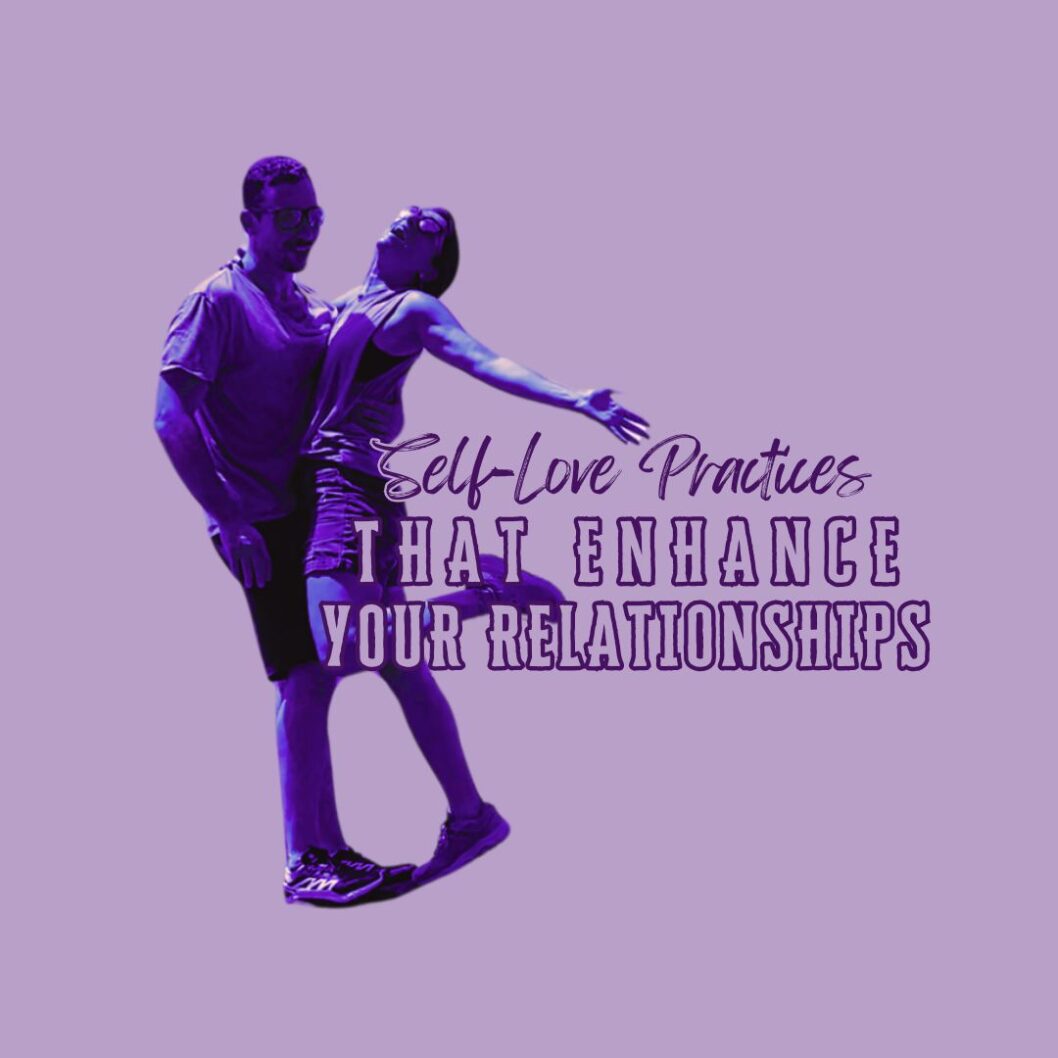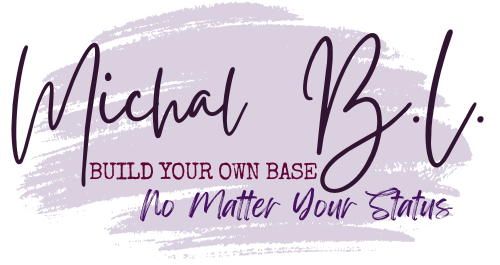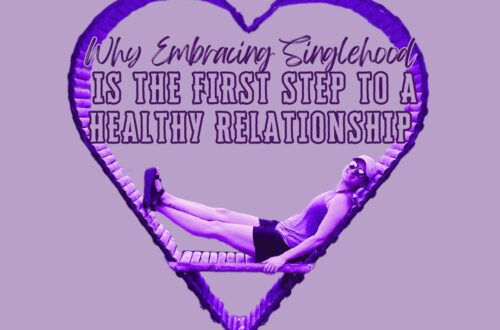
Self-Love Practices That Enhance Romantic Relationships
How Strengthening Your Relationship with Yourself Makes You a Better Partner – These Are the Top Self-Love Practices That Enhance Romantic Relationships
No, you don’t need to love yourself for others to love you. Lacking in self-love doesn’t mean you’re unlovable. It does, however, mean you may struggle to accept and believe the love you get. It may also mean you’re seeking love to “feel enough” or “complete”. But if you’re tired of repeating toxic relationship patterns and craving more balance, independence, or self-worth in love… Then these self-love practices that enhance romantic relationships are exactly what you need. You can and will stop struggling with self-esteem, overgiving, or people-pleasing, and learn how self-love improves relationships.
You Can’t Pour From an Empty Cup
If you’re seeking love to “feel enough” or “complete” you, how can you ever feel enough on your own? And how can you ever give others if you can’t even give yourself? If you don’t have enough, if you don’t even know how to embrace yourself, and if you’re only depending on them?
The False Belief:
“Why do I lose myself when I fall in love?” Sound familiar? I get it, I too measured myself by my relationships and the love I was getting from others. Instead of loving myself first, I lost myself in partners. I lacked any emotional independence in love. Because I didn’t believe I needed to love myself. I didn’t believe I was whole on my own. Instead, I believed that loving harder would fix everything (spoiler: it didn’t). So much so that I convinced myself that their love for me, alone, would make me happy.
The Truth:
Not only did it not make me happy, but the love they gave me wasn’t even real. Not really. For a long time, I believed it was. But how can it ever be real if I don’t even love myself, and all I do is depend on their love? My self-love was non-existent because I wasn’t connected to myself at all. So any love you get is hardly genuine if you can’t really be yourself (as you don’t even know who that is). A healthy relationship with yourself gives you a stronger base to build on with others. This starts with loving yourself first.
The Impact:
Not only will you struggle to accept, you’ll struggle even more to give. Yes, you should first love yourself for YOU. But you also need to love yourself for the people around you. They deserve you to be strong and independent for them. Just like you do, they should also have someone they can trust and lean on. But how can they do that if you’re not even strong enough alone? And how can they trust your love for them if you can’t even love yourself?
Why Self-Love Is Essential in a Relationship
For Yourself:
When you don’t love yourself enough, you’re willing to accept any love that comes your way. Even if it’s fake or sub-par, and even if it harms you. This only lowers your self-worth, as you don’t believe you deserve any better. You accept it because that’s all you deserve, so you should say thanks, and shut up, right? WRONG. True self-love helps you set boundaries – if their love isn’t enough, or if they try to abuse yours, they don’t get access to you or your life. You protect yourself and your heart because you know you deserve it and won’t settle for less. You can communicate better what you want and need, and say NO when it’s not provided or doesn’t align with your values. This also prevents you from people pleasing and losing yourself in relationships. It helps you be true to yourself, who you are and what you want your life to look like.
For Them:
Loving yourself means you’re not constantly leaning on others’ feelings for you. It creates emotional independence — you don’t need your partner to complete you. Meaning, they don’t need to always be there for you. They don’t need to reassure you, lift you up and do all the work. You’re strong enough on your own, and they can now also lean and depend on you as well. Your love for yourself is powerful enough that you now have more love to give to them. And they can confidently accept it and believe it.
For Attracting Better:
You are what you believe – so if you don’t believe you deserve love, you won’t attract it. If you believe you’re unlovable, you’re more likely to attract people who will enhance these feelings in you. You’re love is a showcase for others on how to love you. And if you show up as your whole self (without needing anyone to complete you) — it will attract deeper, better intimacy. If you love yourself as you deserve, not only will you push away those who don’t… You’ll also attract those who’ll love you properly. There’s also something super sexy about someone loving who they are (without being vain, of course).
Signs You’re Lacking Self-Love in Your Relationship
So, how do you know if you don’t love yourself enough, and you’re depending too much on love from others? Notice how you receive love, especially from your partner. Are you desperate for it? Do you hang your worth on it?
- You seek reassurance or fear abandonment – You’re constantly seeking validation from a partner or other loved ones in your life. You need them to constantly show their love, and if they don’t, you worry. Of course, they should regularly, but hanging too much on it isn’t healthy. But even when you get it, it’s hard for you to accept it. You struggle to believe it’s real and always question it.
- You avoid alone time or feel uneasy when you’re not with your partner – Why would you want to spend time with someone you don’t love? Why would you wanna be in the company of someone you don’t enjoy? If you don’t love yourself enough, any time you spend alone will feel like torture. And any time you spend without them is a struggle. Both because they’re not there to give you love and support. And because you feel every ounce of the distance between you.
- You’ve stopped doing things just for you – Instead, you put their needs above yours every time. You’re likely losing your identity in love – you don’t know who you really are without it. So you just do what they want, especially since you just want to please them. You believe that this will also make them love you more.
- You expect them to “fix” your emotional state – You believe that their love for you will make your life better. That it will make you better. You likely also believe that receiving their love will make you happy and make all of your problems go away. All of your hopes hang on them and their feelings for you.
Top 6 Powerful Self-Love Practices
So, are you tired of repeating toxic relationship patterns? Do you want to develop more balance, independence, or self-worth in love for yourself and others? Here are a few self-love practices that enhance romantic relationships, by first enhancing yourself. These are the best self-love practices for people in relationships or singles (and will help you develop a healthier relationship later).
1. Practice Self-Validation
Stop waiting for your partner to say you’re enough — tell yourself first. The more you say it, the more you will believe. Of course, it’s not enough on its own, but it’s the first step and an inseparable part of the process. You’re worthy of love, and if you don’t validate it for yourself, it doesn’t matter how much others will. For example:
- Instead of waiting for your partner to compliment how you handled a tough day, look in the mirror and say, “I’m proud of how I showed up today — I stayed calm, I did my best, and that’s enough.”
- When you’re feeling insecure about your appearance, remind yourself: “I don’t need to look a certain way to be lovable. I am enough exactly as I am, and I choose to love myself today.”
2. Carve Out Solo Time
Spend uninterrupted, quality time with yourself. Do things you love alone to stay connected to you (hobbies, solo dates, journaling, walks). When you spend time with loved ones, you feel closer to them, love them even more. The same goes for yourself. Don’t just waste your time alone; make sure you add substance and value, so you also love spending time with yourself. For example:
- Solo café mornings: Take yourself out for a slow morning at your favourite café—no scrolling, just journaling, people-watching, or reading a book you love.
- Evening reset walks: Go for a walk alone after work with a podcast or your favourite playlist, using it as intentional time to decompress and reconnect with your thoughts.
3. Create a Self-Check-In Routine
Ask yourself weekly: How am I feeling? What do I need? What am I avoiding? Keep track of your self-love journey and where you are in it. Monitor your progress – what’s working and what isn’t. Where you are doing well and where you can improve. And make sure to give yourself what you need – both for self-love and for a contented lifestyle. For example:
- Sunday night journaling: Write 3 quick prompts — “How do I feel?”, “What do I need?”, “What am I avoiding?”
- Midweek mirror check-in: Ask yourself out loud, “How am I doing today?” and give yourself one kind affirmation.
4. Set & Respect Your Own Boundaries
How can you expect others to respect your boundaries if you don’t even do so? First, with the way you treat yourself and show up for yourself. If you don’t make exceptions for others (and you shouldn’t), don’t make exceptions for yourself either. And second, with the way others treat you and how you react to it. Even with your partner. Especially with your partner. For example:
- You don’t cancel therapy, workouts, or creative time just because your partner is free — you prioritise your growth.
- You clearly state when something your partner says or does hurts you — and you don’t downplay it to avoid conflict.
5. Communicate From Wholeness, Not Emptiness
Watch your interactions with loved ones, but especially with your partner. Don’t fold and don’t hold yourself at a lower level than them. Stand up for yourself and believe that you’re worthy of being heard. Don’t approach every conversation needing them to fix you — share, but also take ownership. For example:
- Instead of saying: “I feel so lost — I need you to tell me what to do,”
Say: “I’m feeling uncertain about this and wanted to talk it through with you. I’d love your perspective, but I’m working on finding clarity myself too.” - Instead of: “You never make me feel loved,”
Try: “Lately I’ve been needing more reassurance — and I’m also working on giving that to myself. Can we find a way to support each other better here?”
6. Celebrate Your Wins (Alone)
Yes, it’s important to surround yourself with people who support you. Who take joy and celebrate your wins with you. But it shouldn’t be for or instead of you. And you should also find time and ways to celebrate for yourself, with yourself – and on your own. Acknowledge your growth, strength, and accomplishments — without needing applause or others to do it for you. For example:
- Solo Toast: After hitting a personal goal, grab a glass of your favourite drink and toast to your success—just you. It’s a simple, quiet way to honour your own efforts.
- Victory Dance: Crank up your favourite song and have a mini dance party in your living room. Celebrate your win with movement and joy, just for you.
How Practising Self-Love Affects Your Relationship (In the Best Way)
Can self-love really improve your romantic relationship? And how does self-love improve relationships? Here are the main ways how practising self-love improves other loves in your life:
- You feel more confident, grounded, and secure – So you’re not in constant fear of losing them. Which only pushes them away, and let’s face it – is unattractive. And confidence? Is attractive as hell. It helps you be more secure not only with yourself, but in their love for you.
- You’re less reactive, more intentional – You can communicate better what you need and want. And you can receive their constructive criticism, opinions and feelings more openly. You can grow better together and individually, as it helps you create healthy communication.
- You become easier to love because you’re no longer dependent on them to feel okay – It’s hard, but it’s the truth. Again, you’re NOT unlovable, but it is hard to love someone who doesn’t even love themselves. It’s also hard to give love to someone who doesn’t believe or accept it. And it’s much easier to love someone who loves themselves and is happy.
- You model healthy behaviour – Instead of repeating the same toxic patterns, you start behaving in ways you know you deserve to be treated. You show your partner how to treat you, and how you’re not willing to be treated. Again, you lead by example, and when you respect yourself, you also know how to respect them, and they respect you too.
The Relationship With Yourself Is the Blueprint
You create room for a deeper, more honest love when you love yourself first. Not only do you respect yourself more, but others do, too. They see how you talk and behave towards yourself, and mimic the same actions. Often, perhaps even subconsciously, without realising how they’re treating you. Other times, it’s deliberate, because they can, and you’re accepting it.
Your self-love is a guide for others, and you’re the one who writes it – so take control of the narrative. And make your voice head – loud and clear, uncompromising and without fail. This requires time, effort and patience. Take a step back and look at the full picture. Understand what went wrong and how you can do things differently and better. What does real love look like to you? Give it to yourself, demand it from others and let go of those who don’t. You deserve it – know it, own it.
Stay safe, stay healthy and stay strong!
Michal B.L.

If you enjoy my content, please consider supporting me so I can keep writing helpful, empowering posts for singles!

Please share, pin and spread the love 🙂









One Comment
Pingback: